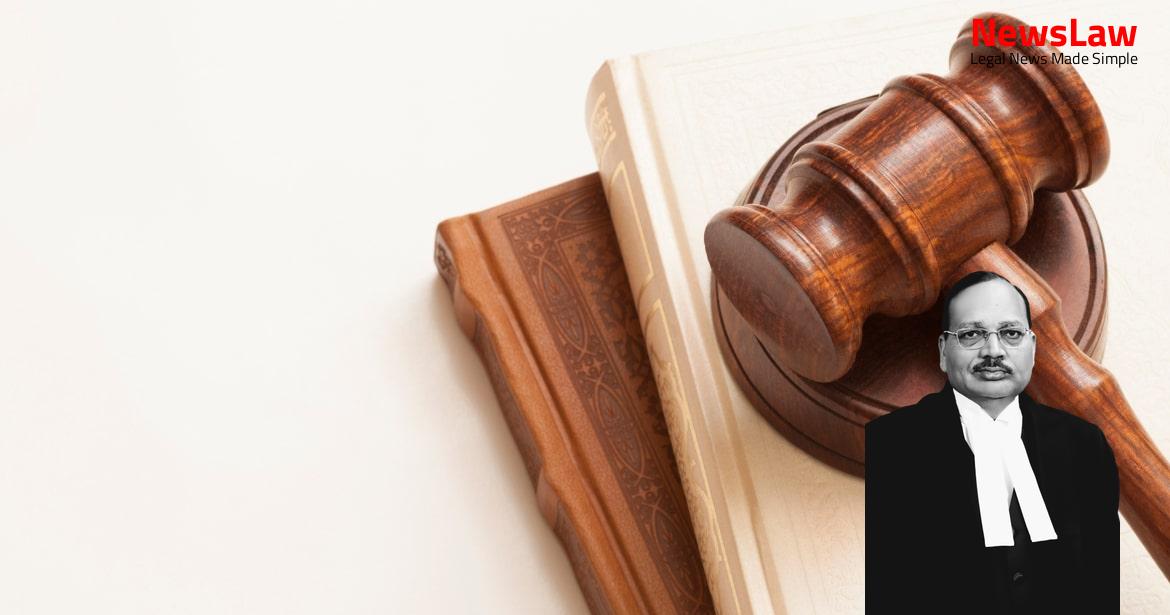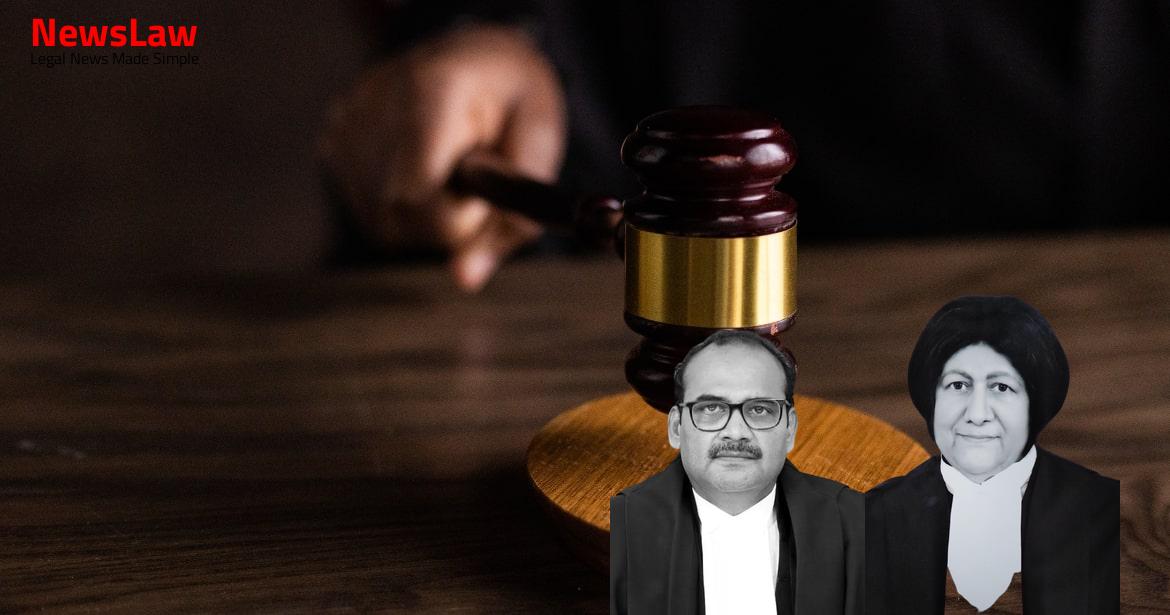In a significant legal development, the Supreme Court of India has ruled on the case involving special sentencing theory, focusing on Swamy Shraddananda vs. Sriharan. The Court has set aside the death penalty and substituted it with life imprisonment for the defendant. This judgment marks a crucial milestone in the evolution of sentencing principles within the Indian legal framework.
Facts
- The appellant was tried for various offences including kidnapping, rape, murder, and destruction of evidence.
- The Trial Court held the appellant guilty and sentenced him to death under Section 376-A of the IPC which deals with rape.
- The Trial Court made a reference to the High Court for confirmation of the death sentence as per Cr.P.C.
- The High Court confirmed the death sentence and dismissed the appellant’s appeal.
- The deceased went missing on 21st May, 2015, and efforts were made by family and authorities to locate her.
- Witnesses testified to various events like the appellant feeding biscuits to the deceased and the eventual discovery of the deceased’s body in a well.
- Police actions included taking blood samples, conducting postmortem, and sending evidence for forensic analysis.
- The appellant’s guilt was emphasized through witness testimonies and forensic results.
- Various individuals, including family members and officials, were involved in the search and investigation process.
- Statements were recorded, and identification proceedings were conducted as part of the legal process.
- The trial court analyzed the facts and raised questions regarding kidnapping, rape, murder, and evidence tampering by the appellant.
Also Read: Ensuring Justice: Amanatullah Khan vs. Commissioner of Police, Delhi – A Landmark Case
Issue
- Appellant’s eligibility for death penalty is the limited issue for consideration.
- Debate surrounds whether the appellant deserves the extreme sentence of death penalty.
Also Read: State of Kerala vs. Union of India: Fiscal Responsibility Case
Analysis
- The ‘rarest of the rare’ doctrine was observed in a case involving the brutal rape and murder of a 4-year-old child.
- Punishment for sexual assault leading to death or PVS must be severe, with a minimum of life imprisonment.
- A special hybrid sentencing category was established to ensure appropriate punishment in cases of extreme violence.
- Death sentence should not be ruled out solely due to lack of direct witness evidence, to prevent devastating effects on society.
- Life imprisonment is the rule, death sentence is the exception, as per the Constitution Bench.
- Judicial discretion is vital in considering death penalty cases based on the peculiar facts and circumstances.
- A balance of aggravating and mitigating circumstances is crucial in determining the appropriate sentence.
- A higher standard of proof may be required for death sentencing, beyond reasonable doubt, considering the irreversibility of the punishment.
- Section 228-A of the Indian Penal Code, 1860 prohibits disclosure of the identity of victims of certain offences.
- The section covers offences under Sections 376, 376-A, 376-B, 376-C, or 376-D of the IPC.
- Any printing or publishing of matter that may reveal the identity of the victim is punishable under this section.
- The purpose of this law is to protect the privacy and dignity of victims of these specific offences.
- DNA evidence using the established STR technique has proved that the appellant committed sexual intercourse with the deceased.
- There were significant injuries and signs of struggle on the body of the deceased.
- Multiple witnesses testified to the appellant’s interactions with the deceased before the incident.
- The deceased was found bleeding due to forcible sexual intercourse but this fact was not supported by medical evidence.
- The appellant’s blood sample matched with DNA from the deceased’s vaginal slides and salwar.
- The findings of kidnapping, rape, resultant death, and destruction of evidence were proven beyond reasonable doubt.
- The appellant’s defense primarily relied on deflecting guilt onto the deceased’s family without evidence.
- Differential standards for awarding capital punishment have led to lack of unanimity among different benches.
- The postmortem examination indicated the deceased died due to throttling and signs of struggle were present.
- No effective challenges were made against the medical or DNA reports in the case.
- The present case does not qualify as one of the ‘rarest of rare’ cases warranting the death sentence for the appellant.
Also Read: R.C. Sabharwal vs. Income Tax Department
Decision
- The concept of special sentencing theory as evolved by the Court in Swamy Shraddananda and approved in Sriharan case is invoked in this judgment.
- The death penalty awarded by the lower courts is set aside.
- The penalty is substituted with life imprisonment for the appellant.
- A direction is given that no remission shall be granted to the appellant, and he shall remain in prison for the rest of his life.
Case Title: RAVISHANKAR @ BABA VISHWAKARMA Vs. THE STATE OF MADHYA PRADESH
Case Number: Crl.A. No.-001523-001524 / 2019



